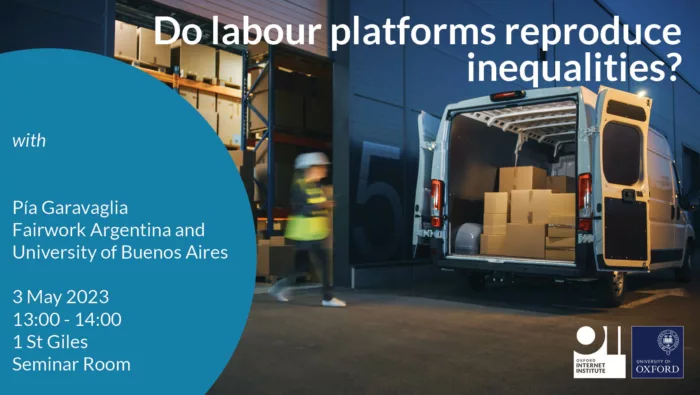About
Employment is the most important social demand in Argentina today, and labour platforms provide fast and effective alternatives, especially for low-skilled workers. This paper performs an evolutionary analysis using the Survey of Platform Workers 2021 (ETP-2021), which provides a profile of those who work within the delivery, transportation and domestic service sectors; their working conditions and the main effects of the COVID-19 crisis. This survey was contrasted with previous statistical series, as well as data from related economic sectors.
Among the main findings we can mention a change in the composition of workers, mainly through the incorporation of native people whose labour and economic situation was affected by the pandemic. Likewise, a generalized worsening of the main working conditions is observed: people working for platforms dedicate, on average, more and more hours in order to maintain their purchasing power and depend mostly on the income generated on the platform.
Self-employment has as a counterpart the lack of periodic negotiation mechanisms that allow for the updating of people’s salaries; the absence of a minimum reference salary; the absence of social protection labour rights such as Christmas bonuses, occupational risk insurance and leave; health coverage with fewer benefits and the impossibility of keeping abreast of -and influencing- when the terms and conditions of work platforms are modified.
The dehumanization of the platforms’ decision-making processes is a nodal point in this problem. Algorithm-based management has progressed to the point of assuming the role of assigning jobs, estimating remunerations, and making decisions unilaterally in the event of conflicts, with little or no knowledge or right to reply on the part of the worker. This highlights the use of disciplinary powers by the platforms and one more indicator that would distance this legal link from independent work.
The regulation of labour platforms and the new forms of employment they generate represents a great challenge for public policies at the national, subnational, and transnational levels. Although significant progress has been made in regulatory matters, a solution that guarantees labour rights and promotes the sustainable growth of work platforms has not yet been found.
The diversity of situations and regulations in force and under debate express the complexity of the issue and the intertwining of interests and actors that are at stake when addressing this matter. Although there have been concrete advances in regulatory terms, such as the Rider Law in Spain, and initiatives not yet debated, such as the draft bill presented by the Ministry of Labour in Argentina, no solution has yet been reached to guarantee the development of the sector with fair working conditions. Based on this, this paper seeks to make two contributions. On the one hand, to provide updated statistical data on platform labour in the delivery, transportation and domestic service sectors. On the other hand, it aims to highlight the points of conflict that manifest these new types of labour relations, in order to synthesize and suggest issues to be addressed by public policy.

